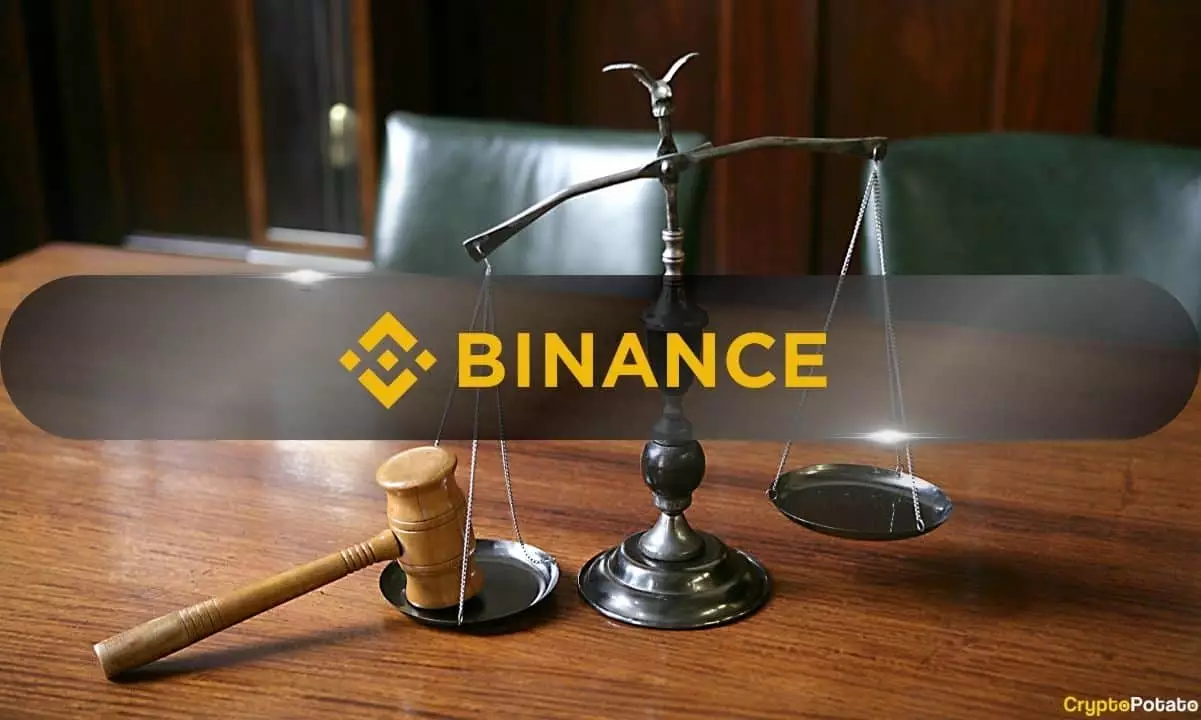In the world of cryptocurrency, few exchanges have had as much scrutiny as Binance. Recently, the U.S. Supreme Court’s decision to deny a petition from Binance and its founder, Changpeng Zhao, highlights significant legal hurdles the exchange faces. The case centers on the application of U.S. securities laws to a non-U.S. entity that operates without a physical headquarters, raising critical questions about regulation in the evolving landscape of digital assets.
The Supreme Court’s refusal to review the ruling by the U.S. Court of Appeals for the Second Circuit solidifies a precedent that may have far-reaching consequences for cryptocurrency exchanges operating globally. The appellate court’s decision determined that Binance, despite being based offshore, is still subject to U.S. laws since it services American clients who engage with its platform. This legal interpretation stems from the fact that transactions initiated by U.S. investors become irreversible upon execution within the national cyberspace.
Critically, the ruling could establish a framework that subjects foreign crypto platforms to U.S. regulations as long as they engage with American customers. This sets the stage for a regulatory environment where foreign entities cannot escape legal accountability simply because their operations aren’t physically based in the U.S.
The genesis of this legal battle traces back to a class action lawsuit filed by investors against Binance in 2020. Plaintiffs argued that Binance failed to adequately disclose risks associated with its unregistered tokens, leading to significant financial losses. This lawsuit underscores the legal vulnerabilities that crypto exchanges face, particularly regarding the marketing and sale of digital assets.
The stakes heightened in 2023 when the U.S. Securities and Exchange Commission (SEC) took action against Binance, asserting that the exchange illegally allowed U.S. citizens to trade cryptocurrencies that were classified as securities requiring registration. Such regulatory actions reveal a growing trend of enforcement in the crypto sector, as authorities strive to protect consumers and ensure compliance with existing financial frameworks.
In response to the appellate court’s unfavorable ruling, Binance argued that modern technological advancements have facilitated easier access for investors to engage with foreign platforms. The exchange underscored that the interconnected nature of the internet enables American traders to participate in global markets from anywhere, allowing exchanges to serve a broader audience.
However, Binance’s argument hinges on a complex intersection of technology and regulation, which may not hold in a legal context designed to protect domestic investors. The reality is that engaging with U.S. users while processing transactions on U.S. servers means that the exchange is playing into a regulatory framework that it cannot easily circumvent.
Beyond the challenges posed by U.S. authorities, Binance has also found itself embroiled in multiple lawsuits and regulatory issues in other jurisdictions. The exchange faced a hefty $4.3 billion settlement with the U.S. Department of Justice for violations related to money laundering and terrorism financing. In Canada, following its exit from the market, Binance dealt with a class action lawsuit and fines, drawing even more focus on its operational practices.
The legal battles facing Binance highlight a crucial turning point for the cryptocurrency industry. As governments around the world grapple with how to regulate digital currencies, exchanges must navigate an increasingly intricate web of compliance issues. This is a period of awakening for regulators, with numerous agencies now looking to impose stricter oversight and enforce laws that protect investors while maintaining the integrity of financial systems.
The Binance saga not only showcases the vulnerabilities present in a largely unregulated space but also serves as a cautionary tale for other exchanges that may overlook compliance. As initial coin offerings (ICOs) and digital asset trading gain traction, the lessons learned from Binance will shape the regulatory landscape and influence how companies operate in this novel arena.
The Supreme Court’s decision not to hear Binance’s appeal paves the path for a comprehensive analysis of regulations pertaining to cryptocurrency exchanges. It suggests that operating a global platform may not exempt companies from fulfilling the legal obligations owed to U.S. clients, ultimately pushing the industry toward a more structured regulatory future.















Leave a Reply